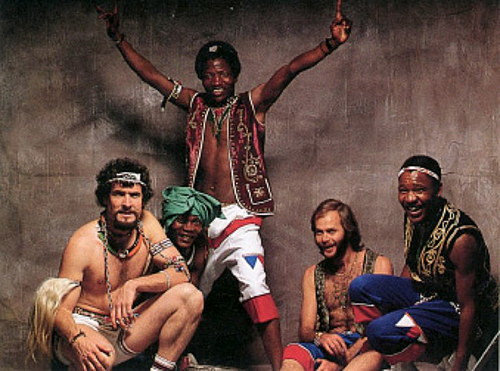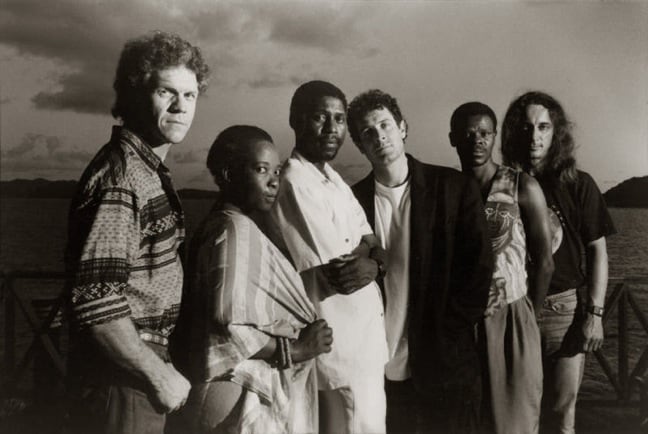Johnny Clegg: Rebel, intellectual, musician
The musician inspired millions and offered a deeply humanistic social and political vision.

Johnny Clegg. Picture: Twitter
In death, the artist begins the process of becoming a collective ancestor for South Africans and others around the world whose lives have been touched by his music and deep empathy with the oppressed.
Johnny Clegg died at his home in Johannesburg on Tuesday, in the care of his family.
Clegg, a man of rare and sparkling intelligence, was in the most fundamental sense of the term, a rebel. As a teenager he made an existential choice to confront history and to refuse the situation in which he found himself.
As an intellectual, a poet, a musician, a dancer and a politically committed person, he harnessed a strength to an aspiration for justice, grounded in a profound empathy for some of the most oppressed people in society.

Johnny Clegg speaks to The Citizen at the Fairlawns Hotel in Sandton, 25 June 2015. Picture: Neil McCartney
From jazz to maskandi
The son of a jazz singer, his encounters with street musicians in Yeoville, Johannesburg, enabled him to begin to forge his own artistic trajectory.
At 14, he met Charlie Mzila, who was working as a cleaner in a block of flats. Mzila began to teach Clegg to play maskandi guitar. At 16, he met Sipho Mchunu, a maskandi musician who was working as a gardener. In the following year, 1970, the two started performing as a duo.
From the beginning, the strictures of apartheid meant their collaboration could only find audiences in liminal spaces.
Their first single, Woza Friday, was released in 1976. It became a hit the following year after receiving radio play in what was then the Transkei and Swaziland.
Clegg and Mchunu’s first album, Universal Men, was released in 1979 under the name of their new band, Juluka. Although it initially sold poorly, it is now widely recognised as a classic.

Juluka.
Music, rooted in politics
Clegg, working in partnership with Mchunu, would go on to release another five albums in the next four years.
The work produced with Juluka is an astonishing sequence of creativity. Each album released between 1979 and 1984 stands up today as work of enduring appeal and consequence.
With songs about everything from work to war, love, political violence, football, horseracing, rural and city life, Juluka was a project shaped by an intense and restless curiosity about society.
The band’s second hit came with Impi, in 1981. The following year Scatterlings of Africa did even better and charted in the UK.
Over time, the political commitments animating Juluka moved into increasingly direct statements. Songs such as African Sky Blue and Work for All continued the exploration of the African working-class experience, while Mdantsane addressed gathering repression.
This body of work has produced a set of classic South African songs, including Umfazi Omdala, December African Rain and Ibhola Lethu.
:format(jpeg):mode_rgb():quality(90)/discogs-images/A-190358-1132052572.jpeg.jpg)
Dudu Zulu and Johnny Clegg.
The birth of Savuka
In 1985, Mchunu moved back to his rural homestead. Clegg’s first solo album, Third World Child, was a bold shift in musical direction but now sounds marked by the moment in which it was created.
In 1986, as the political crisis deepened, Clegg released a single in the name of a new band, Savuka. The song, Asimbonanga, was transcendent, searing, powerful and beautiful.
At the time, Nelson Mandela’s name meant something very different to what it later came to mean and this record, which also name-checked Steve Biko, Victoria Mxenge and Neil Aggett, was a defiant and explicit identification with the popular movement against apartheid, and it rapidly became one of its anthems.
Savuka released an album a year between 1987 and 1989. The first, also titled Third World Child, was a collection of songs put together to introduce the band to an international audience rather than a thematic statement. In commercial terms, it was a success and Clegg became a global icon.

Savuka.
The next two albums, Shadow Man and Cruel Crazy Beautiful World, don’t have the same artistic power. But the latter is notable for Clegg’s movement into an international vision.
The great Savuka album, Heat, Dust and Dreams, came in 1993. Best known for The Crossing – the song Clegg wrote after the murder of his dancing partner Dudu Zulu – it’s a powerful artistic statement of the times that remains compelling today.
None of his later work reached the artistic heights of the albums produced under apartheid, but Clegg became a respected mainstream figure after apartheid.
Today, as he begins the process of becoming a collective ancestor, it will be remembered that he inspired millions and offered a deeply humanistic social and political vision.
This article was first published by New Frame and has been edited.
For more news your way, download The Citizen’s app for iOS and Android.







